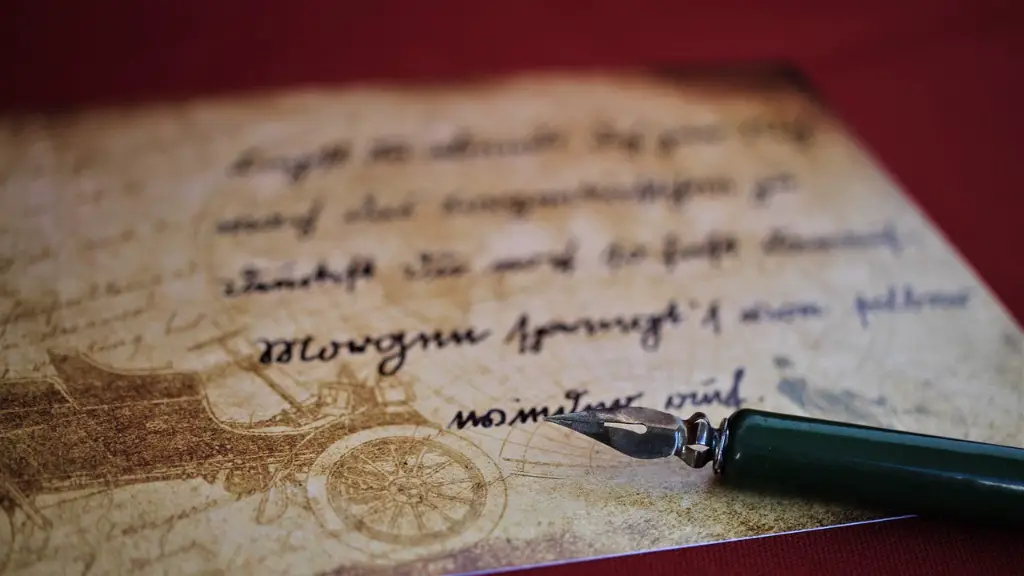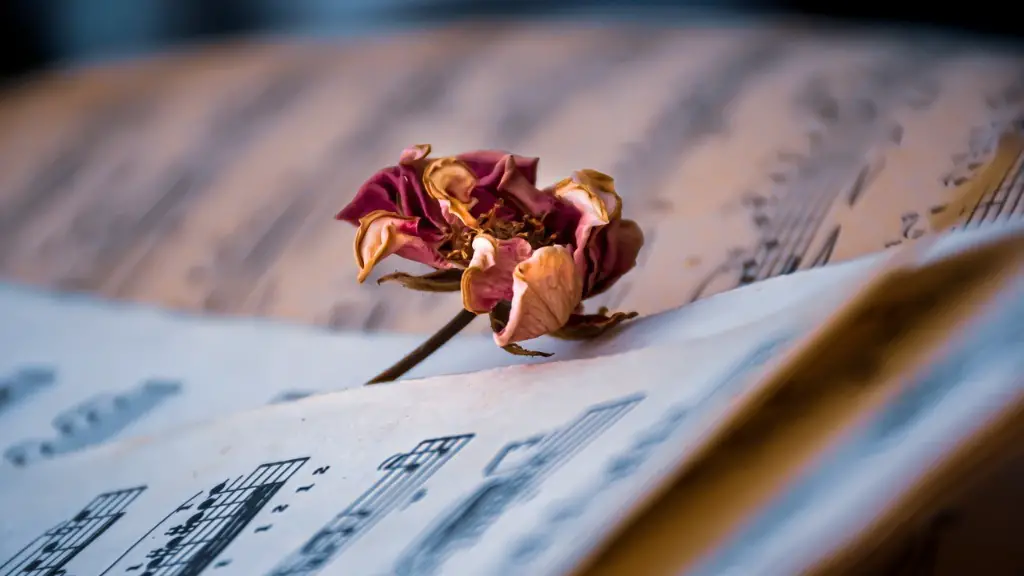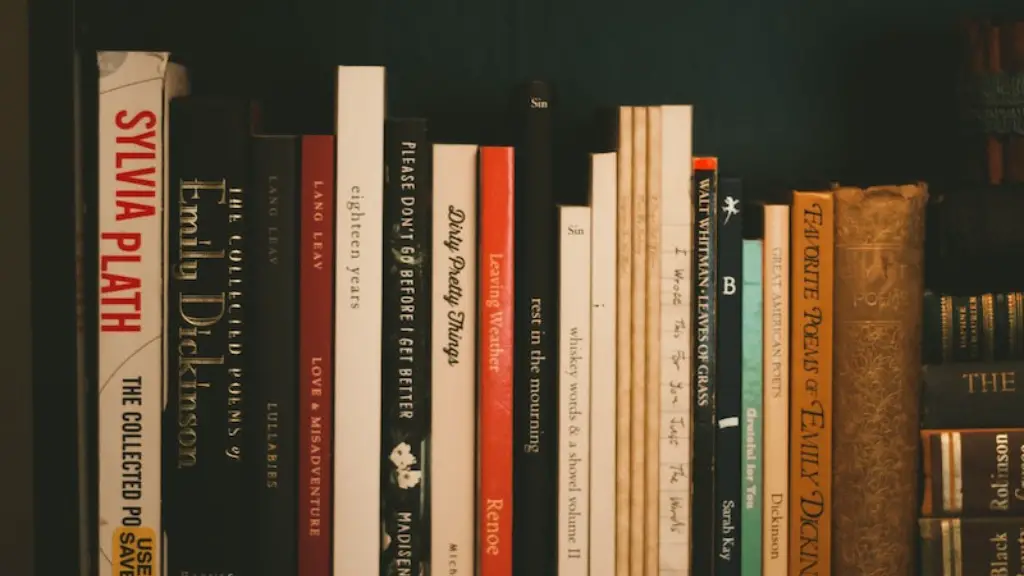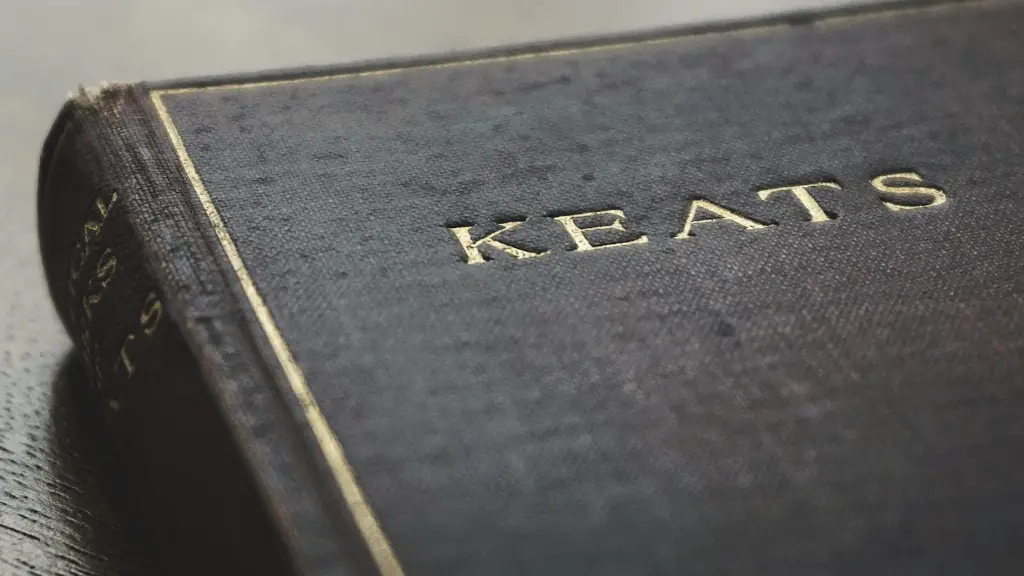Poetry is an ancient art form that captures the beauty and complexity of the human experience in words. It has long been used to convey deep emotions, share wisdom, and explore personal struggles. At its core, poetry is about expressing ideas and feelings through language and imagery. Poetry often takes the form of a poem, a series of lines written in a particular rhythm and pattern. It can range from simple children’s rhymes to complex lyrical works of art that explore the depths of the human experience.
The essence of poetry lies in its ability to capture and convey powerful emotions and ideas through the beauty of language. Poetry can use metaphor, imagery, and symbolism to convey complex ideas in a concise and compelling way. It can evoke memories of past experiences and bring to life concepts that are deeply personal. Poetry also offers a way to connect with readers on a deeper level, as it can take on many forms and styles.
One way to think about the essence of poetry is through the lens of the “creative process.” Poetry is an art form, and the act of creating a poem involves a process of exploration and self-discovery. This process can be quite different from other forms of writing, as it requires an emotional connection to the subject matter. As a poet, one must be willing to delve deep into their own thoughts and experiences, and then translate them into a piece of work that conveys emotion and meaning.
To understand the essence of poetry, one must also explore its use of language. Poetry is known for its unique blend of rhythm, sound, and imagery. A poem’s words are chosen carefully and deliberately, often with the intention of conveying a feeling or emotion. Poems are often full of alliteration and assonance, which can create a musical quality that makes the reader feel as if they are listening to a song. Through its use of language, poetry can be a powerful tool to express feelings and ideas that cannot be expressed any other way.
In addition to its unique use of language, poetry also utilizes narrative structure and figurative language to create a powerful and thought-provoking work of art. Through its use of metaphor, simile, and symbolism, a poem can be crafted in a way that allows readers to explore deeper meanings and experiences. Furthermore, many poets explore different time periods, cultures, and perspectives in their work. This can provide readers with insight and understanding into different cultures and traditions.
The emotional power of poetry also makes it an incredibly powerful and moving art form. Poetry can be used to explore difficult emotions, from grief and sorrow to joy and hope. Poets are able to capture and convey powerful emotions in a way that is often difficult to articulate in any other way. This, in turn, can bring comfort and understanding to readers in times of need, and can offer them hope in times of despair.
In conclusion, poetry is an ancient art form that is still powerful, relevant, and moving today. Through its unique use of language, narrative structure, and figurative language, poetry allows readers to explore powerful emotions and ideas in a way that is both thought-provoking and emotionally moving. Its unique ability to capture and convey powerful feelings and ideas makes it an invaluable tool for exploring the depths of the human experience.
History and Origin of Poetry
Poetry is one of the oldest and most universal forms of art and expression. It dates back to ancient times, with many cultures around the world having their own deep and rich traditions of poetry. It is believed that poetry was first used as a tool for storytelling and communication, and over time, it evolved into its own distinct art form.
The origin of poetry can be traced back to Ancient Greece, where it was considered to be an essential part of a full education. The Ancient Greeks had a strong appreciation for language and rhetoric, and as a result, their poetry often included powerful rhetoric and imagery. Poetry was also used to share wisdom and knowledge, convey emotions, and communicate with the gods.
Through the spread of Ancient Greek culture, poetry made its way around the world. Poetry took on many different forms and styles in different cultures, allowing it to remain relevant and meaningful to generations of readers. From the lyrical Chinese poems of the 6th century BCE to the intricate Sonnets of the Renaissance, poetry has been an art form that has evolved over time to meet the needs of different societies.
As poetry evolved, it began to take on different purposes, such as expression, protest, reflection, and even entertainment. Poets have used the art form to express their political beliefs, share their innermost thoughts, and explore their experiences. Poetry has also been used as a form of entertainment, with many cultures having festivals and events dedicated to the art form.
The Power of Poetry
The essence of poetry lies in its power to express deep emotions and ideas in a way that is both meaningful and moving. Poetry is a powerful tool for conveying feelings and experiences in a way that is often difficult to verbalize. It allows writers to explore their deepest thoughts and feelings in a way that can be meaningful to readers.
The power of poetry also lies in its ability to capture and convey emotion in a way that is both subtle and profound. Through its use of language, poetry can evoke powerful emotions that are difficult to explain in any other form. By weaving vivid imagery and powerful language together, poetry can offer readers a glimpse into the innermost thoughts and feelings of a poet.
Furthermore, the power of poetry can also be found in its ability to evoke powerful emotions in readers. Poetry is a highly personal art form, and it can often invoke feelings that readers may not have even been aware of. Through its use of metaphor, symbolism, and imagery, poetry can help readers to explore and process their own emotions in a meaningful way.
The power of poetry has the capacity to move readers on an emotional level, as it may evoke feelings that they had not even realized were within them. This can be a powerful and even transformative experience, as it can allow readers to discover and explore new emotions, thoughts, and ideas.
How to Read & Understand Poetry
Reading and understanding poetry can be a difficult task, as the language and imagery used can be complex and obscure. However, there are some tips and tricks for understanding poetry. One of the key things to remember when reading poetry is that it does not have to make perfect sense in order for it to be moving or meaningful. The true power of poetry lies in its ability to evoke powerful emotions and convey complicated ideas in an abstract and powerful way.
It is also important to keep an open mind when reading poetry. Many times, the true meaning of a poem is hidden behind layers of hidden symbolism and metaphor. As such, a reader should be willing to explore different interpretations of a poem, rather than expecting to find a single concrete meaning.
When reading poetry, readers should also take note of the language and imagery used by the poet. This can help in understanding the deeper meanings of a poem. By paying close attention to the words and images used, a reader can gain insight into what the poet may be trying to communicate. Additionally, understanding the literary devices and poetic figures used in a poem can help to bring its meaning to life.
Finally, when reading and understanding poetry, it is important to approach it with flexibility. Poetry does not always have to make perfect sense for it to be meaningful. By keeping an open and flexible mindset, a reader can find new and interesting ways to connect with a poem.
The Art of Writing Poetry
Writing poetry is an art form that requires creativity, expression, and emotional depth. At its core, writing poetry is about capturing and conveying powerful emotions, ideas, and experiences through the use of language. In order to write poetry that is meaningful, a poet must have an emotional connection to the subject matter and a willingness to explore the depths of their own mind and experience.
Writing poetry also requires an understanding of literary devices, such as metaphor and imagery, as well as poetic structure. In order to craft a powerful poem, a poet must be able to choose language and imagery that will evoke emotion in the reader. Furthermore, understanding how to craft a narrative structure that will build tension and convey emotions in a powerful way is essential.
In order to become a successful poet, writers must be dedicated to their craft and willing to put in the hard work necessary to become a great poet. Writing poetry is an intricate art form, and like any other art form, it requires practice, dedication, and an understanding of the craft. By devoting time and effort to developing the craft of writing poetry, writers can create powerful and meaningful works of art that will live on for generations.
The Changing Face of Poetry
The essence of poetry has remained the same for millennia; however, the way in which it is utilized and experienced has changed dramatically over the years. Poetry can now be found in many different forms and platforms, from popular music to movies and television shows.
The rise of social media has also transformed the way in which people experience poetry. Through platforms such as Twitter and Instagram, poets now have the opportunity to share their work with a global audience. This has allowed poetry to reach new audiences, as many people are now exposed to poems in an entirely new way.
Technology has also changed the way in which people interact with poetry. Apps such as Poetizer allow poets to record and share their work with ease, while blogs and websites such as Poetry 2.0 are dedicated to providing a platform for poets to share their work and discuss their craft. Additionally, websites such as PoemHunter offer a unique platform for readers to discover and share poems by unknown poets.
Finally, the rise of digital publishing has allowed poets to freely publish and share their work without having to go through the traditional publishing route. Platforms such as Kindle Direct Publishing make it easy for poets to self-publish their work and get it out into the world. This has given poets more control over their work and allowed more people to access the work of independent poets.
The Impact of Poetry
Poetry has had an immense impact on the world and its culture. Poetry has been used throughout history to capture and convey powerful thoughts and emotions. It has been used to tell stories, share wisdom, and protest oppressive systems.
Poetry has also had a major influence on the world of literature. Many of the greatest writers, from Shakespeare to Maya Angelou, have utilized the power of poetry in their work, and the influence of poetry can be found in many literary classics, from novels to plays.
Finally, poetry has had a significant impact on how people think and experience the world. By providing a platform for people to explore and express their own thoughts, feelings, and experiences, poetry has empowered millions of people to express themselves in a powerful, meaningful, and memorable way. By allowing writers to tap into the power of language and metaphor, poetry has the potential to transform readers and enlighten them in a way that no other art form can.





